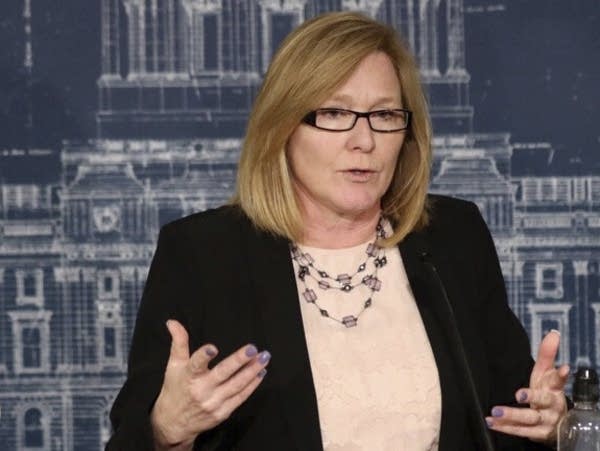Can lieutenant gov. keep Senate seat? AG's view sets stage for suit

Minnesota Sen. and Senate President Michelle Fischbach holds a Capitol press conference Wednesday, Dec. 13, 2017, in St. Paul, Minn.
Brian Peterson | Star Tribune via AP
Go Deeper.
Create an account or log in to save stories.
Like this?
Thanks for liking this story! We have added it to a list of your favorite stories.


